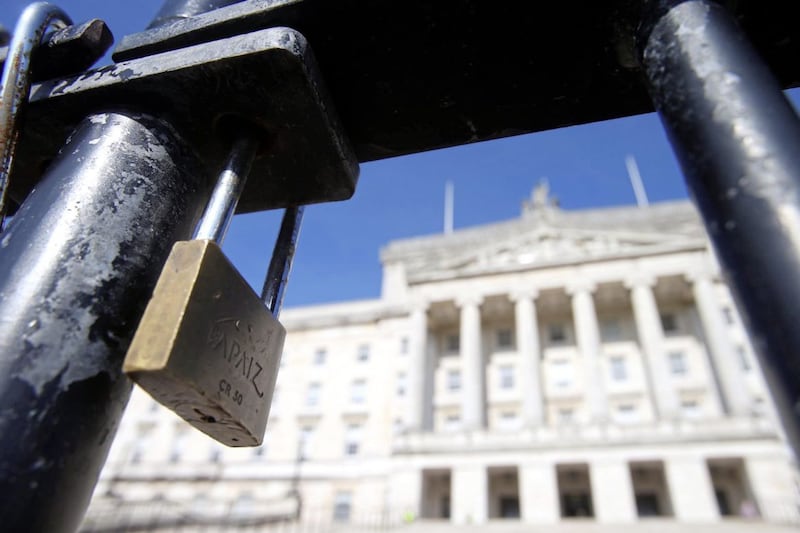Looking back on the past, it is clear that most people often did not realise what was really going on in society and how things would eventually turn out.
The Thirties era provides the classic example. There was a misguided belief that fascism was just an alternative method of organising society; certainly not democratic but, in the eyes of some naïve folk, more efficient than the normal parliamentary system. Hence the widespread view that, “Mussolini made the trains run on time”. But we are told now that this was a reflection of the manner in which Il Duce controlled the message, rather than a statement properly grounded in reality.
Hitler’s anti-Semitism was well-known at the time but there was a clear failure or maybe reluctance to appreciate just how deep-rooted it was and the potential for mass slaughter on an utterly horrific scale. Likewise on the left of the spectrum, criticism of Joseph Stalin was frequently dismissed as capitalist propaganda and it was only when Nikita Khrushchev made the famous “secret speech” in February 1956 that the scale of his predecessor’s murderous activities began to be accepted by former devotees.
The lesson of history is that we need to be more alert than previous generations. The challenge is to make a correct assessment of the existing situation and ascertain where the greatest dangers lie, as well as the main opportunities for social progress.
It may not be too much to say that, as in the era of Hitler and Mussolini, the future of Europe is at stake, although we don’t have the everyday sight of people wearing brown, black or, in Ireland’s case, blue shirts and marching through the streets. Indeed, Eoin O’Duffy from Castleblayney, Co Monaghan, headed-up the Blueshirts and was the first leader of Fine Gael when the party was founded in 1933.
There isn’t quite the same level of political drama in Europe these days, but Brexit is a development that will obviously have major implications for the entire continent and especially this small island of ours.
Having been a key figure in the referendum campaign that ended in a UK majority to leave, Nigel Farage was in Dublin recently to make the case for the south of Ireland to follow suit. A well-attended public meeting at the RDS applauded loudly when he declared that, having been oppressed by the Nazis in the first instance and later by the Russians, the countries of eastern Europe were now being subjected to a further dictatorship in the form of the European Union. His critics, however, would see Farage himself as a promoter of authoritarian policies, especially on immigration.
Farage went on in his RDS speech to point out that Ireland is a rare exception among EU member-states because it lacks a mainstream party with Eurosceptic policies. Judging from the size of the crowd and their enthusiastic reaction to his comments and to an earlier speech from author and broadcaster John Waters, this particular gap in the political market will be filled before too long.
Prior to the Brexit vote, Sinn Féin was widely regarded as Eurosceptic. That would certainly not be an accurate description since the June 2016 referendum. The prospect of a hard border after Brexit has been a key factor in Sinn Féin’s change of approach. In doing so, it has left the way clear for a new party based on the prospect of an Irish exit or “Irexit” from the EU, which might very well run candidates in the 2019 European Parliament elections.
How much support such a party could win from the electorate in the south is hard to gauge. And will it be purely a single-issue organisation or could it also take up positions on other political issues?
The sense one gets is that a Eurosceptic, pro-Irexit organisation might be somewhat conservative on social and moral questions. For example, abortion is a big talking-point at the moment, with a referendum due to be held on removing the ban from the Irish Constitution.
The ruling establishment is in a right old mess on the issue. Most political leaders are backing constitutional change but there is disagreement on the legislation to be put in place afterwards. Senior figures have spoken in favour of legalising abortion without restriction up to the first 12 weeks of pregnancy. Others, such as tánaiste and foreign affairs minister Simon Coveney feel this is excessively liberal, but their critics say they need to come up with workable proposals of their own.
Many observers, including the present writer, believe the 12-week proposal could sink the referendum proposal. The Irish are a cautious lot and tend to balk at the prospect of radical change. Mind you, it isn’t always a bad characteristic and was arguably one of the reasons we didn’t opt for a fascist regime in the 1920s and 1930s.
Ddebre1@aol.com









